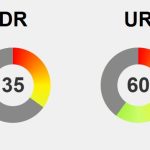Friedrich Nietzsche’s fierce rebellion against traditional values continues to challenge and inspire us, prompting profound questions about authenticity, power, and morality. His critique of religion and societal norms was not a reckless rejection but a deliberate call for self-overcoming—urging individuals to forge their own paths amid chaos and conformity. Concepts like the Will to Power, Eternal Recurrence, and the Übermensch serve as provocative symbols of radical self-creation and vitality. But how do his revolutionary ideas shape modern philosophy, psychology, art, and culture? Nietzsche’s influence pushes us to question inherited beliefs, confront chaos as a source of strength, and embrace vulnerability as a pathway to resilience. His legacy asks: can true freedom be found in forging one’s own values amid a world of uncertainty, or does this rebellion risk moral relativism? Ultimately, Nietzsche’s philosophy is a daring invitation to live boldly and authentically—challenging us all to reconsider what it means to truly be free.
Unveiling Nietzsche’s Call to Question and Create
Friedrich Nietzsche’s ideas didn’t just shake up philosophy—they challenged the very fabric of Western culture. His call to question inherited beliefs and societal norms pushes us to look beyond surface values and seek a deeper understanding of what it means to live authentically. Instead of accepting tradition at face value, Nietzsche encourages us to forge our own paths, emphasizing strength, self-awareness, and personal growth as essential for true fulfillment.
His critique of traditional authority—whether religious, moral, or societal—comes from his early experiences in a strict religious environment. Nietzsche saw how these structures could suppress natural human instincts and vitality. As he matured, he recognized that many inherited values served power and conformity more than genuine human flourishing. His rebellion wasn’t reckless; it was a deliberate call for self-overcoming, urging each individual to create their own values through resilience and inner strength.
At the core of Nietzsche’s philosophy are ideas like the Will to Power and Eternal Recurrence. The Will to Power suggests our drives are rooted in a fundamental desire to assert and enhance ourselves. It challenges us to harness our instincts rather than repress them, pushing toward self-assertion and vitality. Eternal Recurrence asks us to imagine reliving our lives endlessly—prompting us to live in a way we’d be willing to repeat forever. These concepts aren’t just philosophical—they’re calls to live purposefully and authentically, embracing life’s chaos and complexity.
Perhaps most iconic is the idea of the Übermensch, or Overman—a figure who creates their own values beyond societal and religious constraints. The Übermensch embodies radical self-empowerment, embracing instincts, vulnerability, and inner strength. This vision of living boldly and owning one’s destiny challenges us to move beyond herd mentality and external authority, fostering a life rooted in personal responsibility and authenticity.
Nietzsche’s rebellion was about more than individual freedom; it questioned the very idea of objective truth and universal morality. His critique of Christianity and traditional morals exposed how these systems often promote weakness—encouraging guilt, humility, and self-denial rather than vitality and strength. By challenging these inherited beliefs, Nietzsche aimed to inspire a shift toward values rooted in human power, creativity, and life-affirming energy.
Challenging Morality and Embracing Self-Overcoming
Friedrich Nietzsche’s philosophy is rich with provocative ideas that challenged the very foundations of morality, truth, and human nature. Central to his thought is the Will to Power, which suggests that all human actions stem from a fundamental drive to assert and expand one’s influence. This concept questions the idea of universal moral standards, proposing instead that our instincts and desires—shaped by power dynamics—are the true forces guiding behavior. Nietzsche’s view reframes morality as a product of personal interests and social structures rather than objective truths.
Another cornerstone of his philosophy is the notion of Eternal Recurrence, a thought experiment asking us to imagine reliving our lives repeatedly. This idea compels us to reflect on whether we’re living authentically and courageously. Would we be willing to accept every choice, every moment, if it had to be repeated forever? It pushes us toward deliberate living, urging us to align our actions with values we’d willingly embrace eternally. This challenge underscores the importance of living with purpose and integrity in every aspect of life.
The figure of the Übermensch, or Overman, embodies Nietzsche’s ideal of radical self-creation. Rather than conforming to societal or religious norms, the Übermensch forges personal values rooted in strength, vulnerability, and instinct. This archetype symbolizes the pursuit of self-mastery and independence, encouraging individuals to reject externally imposed morality and take full responsibility for shaping their own destiny. It’s a call to transcend herd mentality and embrace a life of authenticity and inner resilience.
Nietzsche’s critique of Christianity and traditional morals is particularly provocative. He viewed these systems as rooted in weakness—promoting humility, guilt, and self-denial rather than vitality and strength. By exposing how these moral frameworks serve to suppress natural instincts, he aimed to inspire a reevaluation that prioritizes human power, creativity, and life-affirming energy. His challenge was to develop a set of values that celebrate human vitality instead of guilt and conformity.
This philosophical rebellion also blurs the line between individualism and nihilism, sparking debates that still resonate today. Critics worry that emphasizing personal power might lead to selfishness or moral relativism, but Nietzsche saw this as a necessary step toward genuine self-empowerment. His ideas invite us to confront chaos and suffering as essential elements of growth, urging us to create meaning from within while questioning the authority of external systems.
Catalyzing a Cultural Revolution of Values
Friedrich Nietzsche’s ideas didn’t just challenge individual beliefs—they ignited a sweeping cultural upheaval that transformed Western society’s core values. His call for a “revaluation of all values” questioned the authority of long-standing moral and religious institutions, urging people to think independently about what truly matters. Instead of accepting inherited norms blindly, Nietzsche pushed us to redefine morality based on strength, vitality, and authenticity. This shift moved society away from conformity and toward a focus on self-creation and personal power.
His critique of Christianity was especially revolutionary. Viewing it as a system rooted in weakness—promoting humility, guilt, and self-denial—Nietzsche saw it as suppressing human instincts and vitality. By challenging these moral frameworks, he opened space for new values that celebrate strength, instinct, and life-affirming energy. This confrontation with tradition didn’t just threaten religious authority; it questioned societal norms that upheld submissiveness and conformity, inspiring a broader movement toward individualism.
This rebellion against tradition fueled a cultural shift toward personal responsibility and existential exploration. People began to reject the idea that morality was dictated from above, instead choosing to craft their own standards rooted in inner strength. Artists, writers, and thinkers found in Nietzsche’s ideas a powerful catalyst for innovation, embracing disorder and inner turmoil as sources of growth. This led to new forms of artistic expression that challenged conventional aesthetics, celebrating raw emotion and authenticity.
Nietzsche’s concept of the Übermensch became a symbol of this transformation—a figure who creates their own values beyond societal constraints. It inspired those longing for autonomy and self-empowerment, urging individuals to forge a life rooted in their unique instincts and inner resilience. His critique also prompted a reevaluation of authority and obedience, encouraging critical thinking and personal responsibility over unquestioning conformity. This cultural revolution laid the groundwork for modern ideas of freedom, authenticity, and self-determination.
In essence, Nietzsche’s rebellion was about more than tearing down old beliefs; it was about fostering a new way of being. His influence helped cultivate a society that prizes self-creation, strength, and authenticity. By challenging the moral order, he paved the way for a culture where chaos and instinct are not threats but vital sources of vitality and renewal. His ideas continue to inspire us to question, redefine, and build lives grounded in inner resilience and genuine freedom.
For those interested in exploring how these ideas translate into modern contexts, understanding the role of personal empowerment is essential. Embracing the principles of individualism and self-creation can be greatly enriched by resources that delve deeper into Nietzsche’s philosophy, such as this insightful article on Nietzsche and Self-Empowerment. Engaging with these materials can inspire a more profound application of his revolutionary concepts in today’s society.
Spreading the Rebel’s Fire Across Disciplines and Society
Friedrich Nietzsche’s rebellious ideas continue to resonate across a wide range of disciplines, shaping contemporary ways of thinking about ourselves and the world. In philosophy, his challenge to traditional morals and his emphasis on individual perspective laid the groundwork for existentialism and postmodernism. By questioning absolute truths and the objectivity of morality, Nietzsche encouraged a shift toward subjective experience and personal interpretation, making philosophy more about inner exploration than fixed doctrines.
In psychology and personal development, Nietzsche’s concepts of self-overcoming and inner resilience have found a natural home. Modern therapy models and self-help movements often draw on his idea that embracing chaos, vulnerability, and suffering can lead to authentic strength. His belief that true power comes through confronting inner conflicts inspires countless individuals seeking to forge resilient identities amid life’s inevitable hardships.
The arts have also been deeply influenced by Nietzsche’s thought. Artists, writers, and musicians have adopted his rejection of conventional norms and his celebration of chaos as a creative force. His emphasis on raw emotion and instinct as sources of inspiration has encouraged a more rebellious, experimental approach to art—one that values authenticity over tradition. This shift has fostered a culture where disorder and inner turmoil are seen not as threats but as vital catalysts for growth and innovation.
Beyond individual fields, Nietzsche’s ideas shape ongoing societal conversations about empowerment and authenticity. Movements advocating personal responsibility and critical thinking often echo his call to challenge external authority. His concept of the Will to Power acts as a metaphor for asserting personal agency in a world that often promotes conformity, inspiring people to harness their instincts and question societal norms.
His critique of societal and religious institutions continues to influence debates on morality and power structures. By exposing how morality can serve to reinforce dominance, Nietzsche encourages a more skeptical view of inherited beliefs. This fosters a culture of questioning, debate, and personal responsibility, empowering individuals to define their own values rather than accept imposed ones.
In education, Nietzsche’s emphasis on self-creation and critical inquiry inspires pedagogies that prioritize inner strength and personal exploration. These approaches encourage learners to challenge inherited knowledge and develop authentic understandings—preparing them to navigate complex realities with resilience and independence. This shift helps cultivate thinkers who value originality over rote acceptance.
In the digital age, Nietzsche’s focus on self-empowerment and questioning authority remains highly relevant. Online communities and social movements often promote individual voices and authentic expression, echoing his challenge to inherited beliefs. His ideas continue to fuel efforts to redefine identity, morality, and community in a world rapidly transformed by technology and information.
Enduring Legacy: Living Boldly in the Spirit of Rebellion
Friedrich Nietzsche’s rebellious philosophy continues to resonate deeply, shaping how we see ourselves and our place in the world today. His challenge to established moral values and his call for individual empowerment have inspired countless movements that prioritize authenticity, resilience, and self-creation. By urging us to question inherited beliefs, Nietzsche opened the door to a more personal, autonomous way of living—one rooted in inner strength and self-awareness. His ideas remind us that true freedom comes from within, and that forging our own paths requires courage and a willingness to challenge the status quo.
His critique of traditional morality, especially the influence of religion, was revolutionary. Nietzsche saw these systems as tools that suppressed human instincts and vitality, promoting guilt and conformity instead of strength and vitality. This rejection encourages us to explore genuine motivations rather than blindly follow long-held conventions. His philosophy invites us to embrace chaos, vulnerability, and even suffering as essential steps toward building a stronger, more authentic self—an ongoing act of self-overcoming that fuels growth and self-discovery.
Throughout history, Nietzsche’s influence has extended far beyond philosophy. In psychology, art, and culture, his ideas continue to challenge us to think differently about morality, power, and human potential. His concept of the Übermensch remains a powerful symbol of self-empowerment—an ideal of creating meaning amid chaos. This legacy underscores that his rebellion was not mere rejection but a call to reimagine what it means to live fully and authentically, even in a world of uncertainty.
Today, Nietzsche’s emphasis on self-overcoming fuels movements that champion personal responsibility and inner resilience. His challenge to external authority inspires individuals to harness their instincts and craft lives that reflect their true selves. His philosophy advocates for embracing disorder as a vital source of vitality, urging us to confront our fears and limitations head-on. In doing so, we reclaim the power to shape our destiny and create a meaningful existence rooted in authenticity.
His critique of societal and religious structures remains relevant, encouraging continuous questioning of authority and inherited beliefs. Nietzsche urges us to examine the motives behind societal norms and to develop our own moral compass. This ongoing process of self-inquiry helps cultivate a culture of debate, critical thinking, and personal responsibility—traits that foster genuine freedom and individual growth. His ideas challenge us to see chaos not as a threat but as a necessary force for renewal.
In a world marked by rapid change and complexity, Nietzsche’s call for self-empowerment and authenticity provides a guiding light. His emphasis on internal resilience and the importance of forging personal values helps us navigate uncertainty with confidence. His philosophy reminds us that the path to genuine freedom involves constant self-reinvention—questioning, redefining, and owning our beliefs. This ongoing act of self-overcoming keeps us aligned with our deepest aspirations.
Ultimately, Nietzsche’s rebellious spirit urges us to view life as a continuous journey of self-creation. His ideas inspire us to challenge the external, embrace chaos as a source of strength, and cultivate inner resilience. They remind us that authentic living isn’t about conforming but about forging a unique, powerful identity—one that can withstand the chaos and complexity of modern life. By embodying this legacy, we unlock the potential to live boldly, purposefully, and truly free.





